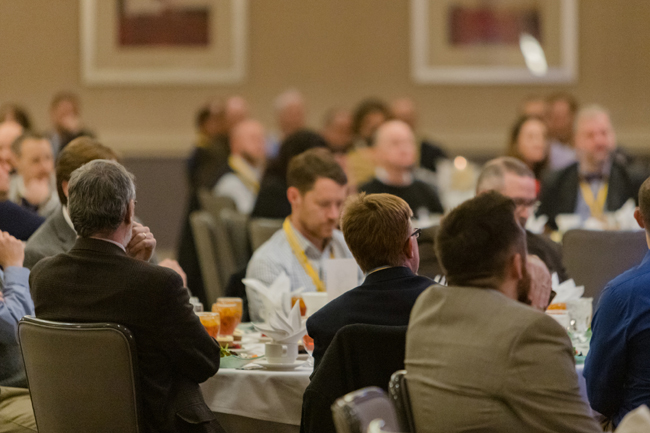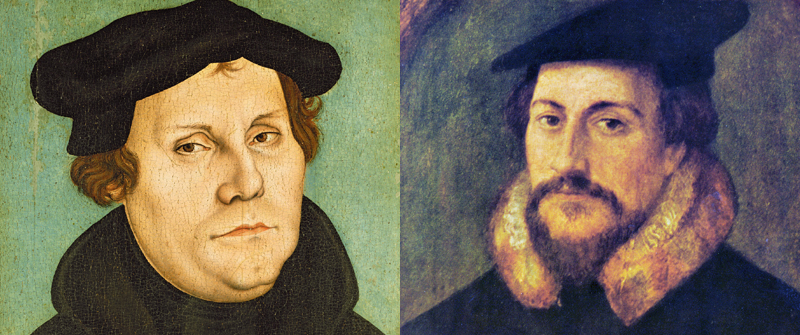
DENVER (BP) — The Holy Spirit theme of the Evangelical Theological Society’s annual meeting provided a venue for application of Scripture’s teaching on the Holy Spirit to a variety of disciplines.
According to a count by Baptist Press, a quarter of the presentations (some 190 of 750) were offered by scholars with ties to Southern Baptist churches, Southern Baptist Convention entities and colleges that partner with Baptist state conventions.
The 2,700 participants at the Nov. 13-15 meeting in Denver marked the second highest ETS attendance ever, the society told Baptist Press.
Among Southern Baptists involved in ETS leadership, David Dockery, president of Trinity International University, completed his one-year term as president. Southern Baptist Theological Seminary President R. Albert Mohler Jr. was elected vice president in Denver, and Southern Seminary professor Gregg Allison was reelected secretary.
Professors from all six SBC seminaries presented papers at ETS, with many focusing on the meeting’s Holy Spirit theme.
Spirit’s deity established
Michael Haykin, professor of church history and biblical spirituality at Southern, presented one of the conference’s three plenary addresses. His focus was fourth-century discussions of the Holy Spirit, which eventuated in the Council of Constantinople’s famous confession of the Spirit’s deity.
While experience and political realities played a role in patristic theologians’ views on the Holy Spirit, Haykin wrote in a manuscript of his presentation, “even a casual perusal of” fourth-century writings on the Spirit “reveals the utter centrality of Scripture in their argumentation.”
Basil of Caesarea (330-379), a chief proponent of the Holy Spirit’s deity, drew on a variety of biblical passages, Haykin wrote. Among them:
— Matthew 28:19 “ranks the Spirit together with the Father and the Son.”
— 2 Corinthians 3:16-18 ascribes the term “Lord” to the Holy Spirit, “indisputable proof of the excellence of the Spirit’s glory.”
— 1 Corinthians 12:3 teaches “knowledge of God does not come through an intermediary like an angel, but is given by God.” Because the Holy Spirit gives knowledge of God, He “must therefore be divine.”
For fourth-century theologians, Haykin wrote, “the Holy Spirit, together with the Father and the Son, must be confessed as ‘the Lord, the Life-giver.'”
Edwards a Baptist?
Chris Chun, associate professor of church history at Gateway Seminary, presented a paper speculating that renowned New England theologian Jonathan Edwards may have had Baptist leanings — though he publicly maintained his belief in infant baptism. Edwards (1703-58) was a leader in the First Great Awakening and often is viewed as one of America’s greatest theologians.
“The descriptor ‘Proto-Baptist,’ even at the risk of being indicted for making Edwards into my own image, made sense to me because he was not fully Baptist,” Chun wrote. “Nevertheless, the case can be put forth that he had all the necessary pieces to make the journey.”
Edwards rejected a practice of New England Congregationalists known as the half-way covenant, by which non-believers presented their children for infant baptism and took the Lord’s Supper. “Edwards’s rejection of this scheme, I think,” Chun wrote, “closely resembles a concept known as the ‘believer’s church,’ a hallmark of Baptist ecclesiology.”
Why didn’t Edwards, then, embrace Baptist views on baptism? He may have regarded baptism as too “small” an issue to think about; he may have taken infant baptism “for granted”; and he may have been afraid to associate with Baptists because they were “an unpopular minority movement in Rhode Island,” Chun wrote.
Still, Edwards’ affirmation of infant baptism “at least should have an asterisk next to it,” Chun wrote.
Are miraculous gifts for today?
Adam Harwood, associate professor of theology at New Orleans Baptist Theological Seminary, presented a paper offering a new way to answer the question: Does the Holy Spirit give believers miraculous gifts today?
Miraculous gifts, Harwood wrote, can be defined as “occurrences such as the gifts of healing, tongues, and prophecy; such gifts occurred in multiple texts in the book of Acts but would be regarded as remarkable and unusual today by a wide range of reasonable and mature Christians who are native to the United States.”
Traditionally, some believers have said “miraculous gifts have ceased to function in the church” and were merely signs of an apostle during the church’s early days, Harwood wrote. Others have said “miraculous gifts continue to function in the church.”
Harwood rejected both of those views in favor of a view he labeled “contextualism,” which claims “miraculous gifts continue among some groups of believers but have ceased among other groups of believers today, and the reason for the continuation or cessation of miraculous gifts might depend on the context of those believers.”
Citing several testimonies of contemporary people receiving visions and dreams, Harwood claimed miraculous gifts might occur today to make people “more receptive to the message of the Gospel.”
Answering the Islamic State
John Laing, professor of systematic theology and philosophy at Southwestern Baptist Theological Seminary, presented a paper claiming college and seminary theology professors can help combat the Islamic State terrorist group’s recruitment of young Americans.
“Many young Americans recruited into the Islamic State are more interested in belonging than in Islam,” Laing wrote. “Unfortunately, churches have not met that need.” Equipping ministers to reach American youth vulnerable to the Islamic State will require “more emphasis upon spiritual disciplines, the Christian life, and holiness.”
Professors also must prepare their ministry students to combat Islamic State arguments against Christianity, which are “based on poor historical research and fundamentally flawed understandings of basic Christian theology,” Laing wrote. For example, the Islamic State “makes the dubious claims that [the Islamic prophet] Muhammad is the prophet of Deuteronomy 18 and the Paraclete of John 14.”
Theological educators “can ensure that the people we train in the faith are equipped to answer the questions of their congregants who are struggling not only spiritually, but also intellectually with the faith,” Laing wrote. “This requires emphasis upon sound Christian doctrine, sound ethical teaching and practice, and at least some exposure to apologetics.”
Spirit’s role in shaping believers
Mark Liederbach, professor of theology, ethics and culture at Southeastern Baptist Theological Seminary, presented a paper on the Holy Spirit’s role in bringing believers to spiritual maturity.
The process of forming mature believers involves both divine and human actions, wrote Liederbach, Southeastern’s vice president for student services. The Spirit’s work includes indwelling believers, praying with and for them, providing spiritual gifts and uniting them to the church.
From a human perspective, the process of being transformed by the Spirit includes “prayerful yielding,” “diligent striving,” “keeping in step with the Holy Spirit” and “abiding” in a pattern of obedience, Liederbach wrote.
“We can all give thanks to the Father and the Son for sending us the Spirit that He might continue the work that was begun in us through … Jesus Christ,” Liederbach wrote. “For it is by the work and ministry of the Holy Spirit” that “each of us is being transformed moment by moment, degree by degree, step by step until we finally become in practice what God has declared us to be in truth.”
The timing of baptism
Robert Matz, assistant professor of Christian studies at Midwestern Baptist Theological Seminary, presented a paper claiming New Testament baptisms generally occurred at the time a believer was saved. While some theologians and pastors today advocate delaying baptism to evaluate a new believer’s profession of faith, the notion of a delay between salvation and baptism, Matz wrote, is foreign to Scripture.
To support his claim, Matz examined the relationship in the New Testament between water baptism and Holy Spirit baptism, the Spirit’s life-giving work within a believer when he or she comes to faith in Christ.
“There are no examples in Scripture of water baptism being separated in time from Spirit baptism,” Matz wrote. “Indeed, Spirit baptism is not presented in the New Testament apart from water baptism. Water baptism is normally presented as the appropriate response to Spirit baptism. Nowhere is there a long delay recommended between water and Spirit baptism.
John the Baptist’s baptism, baptisms in Acts, and Paul’s discussion of baptism all underscore the point, Matz wrote.
“There is not room within the Pauline context,” he wrote, “for believers who are delaying water baptism.”
Next year’s ETS annual meeting is Nov. 19-21 in San Diego, Calif.

















